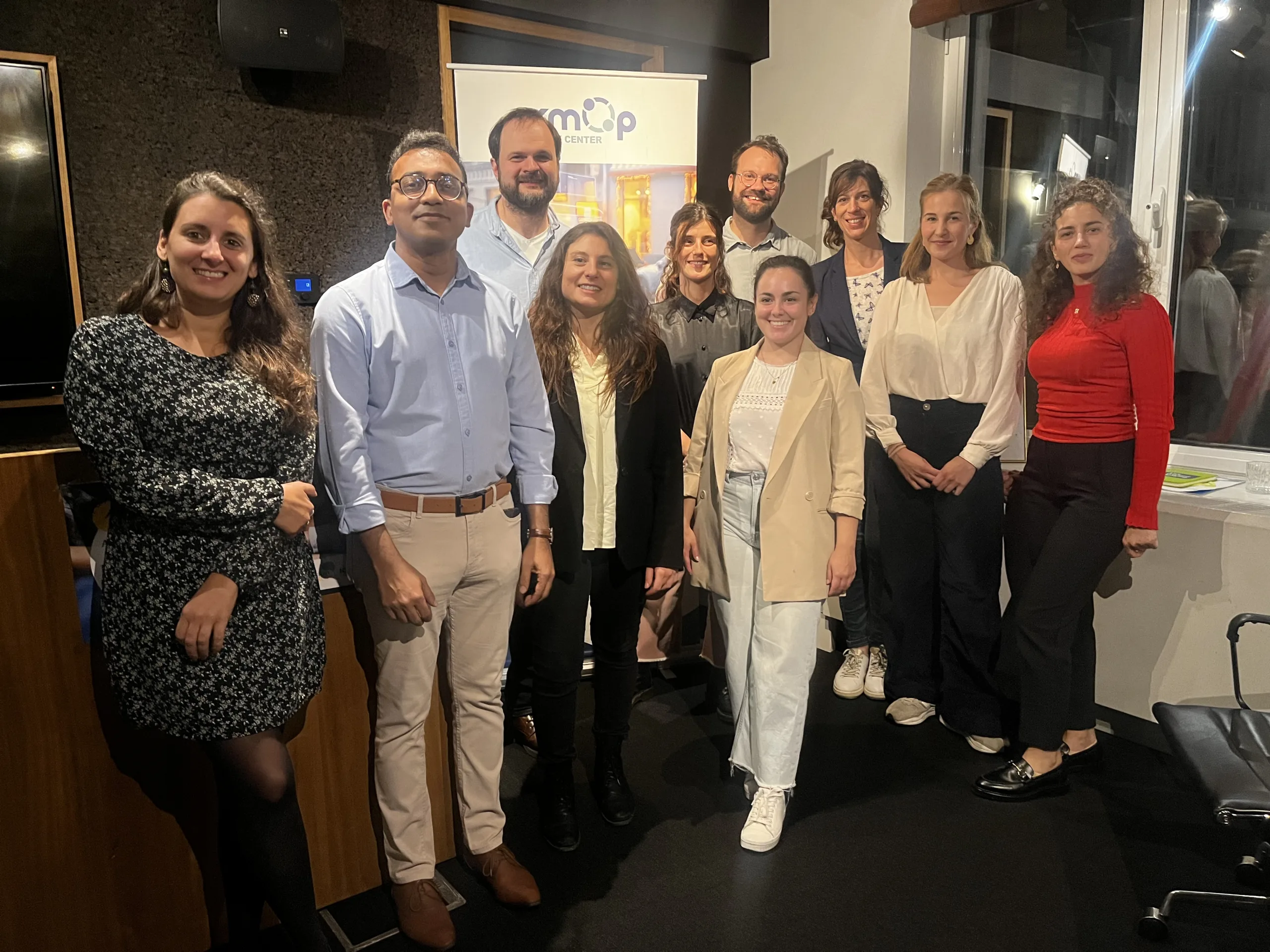 Share this!
Share this!On 17 October 2024, Emanuela Pisanó, EU-Belong Project Manager, participated in the final event of History Box, an Erasmus+ funded project coordinated by KMOP Policy Centre. Different experts were invited to share experience and knowledge on the topic of migration and inclusion, resulting in an insightful conversation and inspiring best practices. The event underscored the importance of history education in intercultural integration, highlighting relational skills, cultural understanding, and lifelong learning as essential Skills for the Future in an evolving European landscape.
Founded in 1977 in Greece, KMOP has grown into a prominent civil society organization dedicated to advancing individual and community well-being through a wide range of social support services, educational initiatives, research, and policy advocacy. Central to KMOP’s mission is a commitment to addressing social challenges with evidence-based solutions that promote prosperity on both individual and collective levels. To further its mission, KMOP actively implements internationally funded projects, often supported through European programs.
One notable initiative is History Box, an Erasmus+ funded project launched in collaboration with partners from Spain, Italy, Sweden, and Austria. Over two years, History Box achieved two main goals: it equipped educators working with migrants with tools to share cultural insights and underscored the value of historical education in integration. Nancy Zoidou Saripapa, KMOP Project Manager, outlined the project’s outcomes, which included practical educator guidelines, a policy paper, numerous micro-learning units for each partner country, and a digital training hub. These resources offer professionals involved in integration courses quick access to updated, high-quality materials that explain essential historical elements, aiding migrants, asylum seekers, and refugees in understanding their new cultural environment.
The impact of history education was highlighted by Peter Paul Marckhgott-Sanabria, Project Manager at die Berater, who noted that it goes beyond understanding societal dynamics: it shapes collective memory and intercultural identity. Similarly, Mariana Restrepo Palacio, EU Project Officer at INCOMA, emphasised that history is not just a collection of dates and events: it is shaped by who tells the stories and why. This perspective-driven approach was exemplified by Daria La Barbera, Migration Unit Coordinator at CESIE, Italy, that runs initiatives to empower female writers of African origin to share their narratives, enriching Europe’s intercultural identity.
Given the complexity of integration, public authorities play a crucial role in supporting it through well-coordinated strategies rooted in intercultural and multi-stakeholder approach. This is where EU-Belong was able to showcase existing best practices and policy examples that could inspire further actions in multiple European territories. In particular, the last publication “Building Inclusive Societies: Regional Strategies for Intercultural Integration” was presented as evidence of the possible work that regions can implement on the ground. Perrine Raquez highlighted Belgium’s contribution with Fedasil’s “Belco” training program, which provides migrants with practical modules on housing, education, employment, and health, supporting their informed decisions before and upon arrival. In Sweden, Rasmus Trappe of Bring Hope HF outlined their integration program, which centers on Swedish language acquisition, employment support, and civic engagement. While Sweden’s approach is robust, further improvements in historical education, civil society collaboration, and language training accessibility could strengthen immigrant integration efforts.
Finally, Vanessa Cotterell, Project Manager at UNITEE, presented a wide range of innovative initiatives that could be leveraged to create a more inclusive society through arts, culture and inclusive storytelling.
The event highlighted the transformative power of intercultural education, collaborative policy development, and inclusive storytelling in building cohesive societies. By sharing best practices and innovative projects like History Box and EU-Belong, participants illustrated how relational skills, cultural understanding, and lifelong learning are essential Skills for the Future in an evolving European landscape. While gathering diverse EU perspectives, the event underscored the importance of adopting intercultural strategies and multi-stakeholders’ partnerships to address complex integration challenges, ultimately creating pathways for more resilient, interconnected communities across Europe.
About the project
EU-Belong is a 3-year project co-funded by the Asylum, Migration and Integration Fund of the European Union. Coordinated by the Assembly of European Regions (AER) within the framework of its Intercultural Regions Network (IRN), it is implemented in partnership with ten regional authorities from seven European countries: Arad and Timiș in Romania; Catalonia and Navarra in Spain; Donegal in Ireland; Emilia-Romagna in Italy; Leipzig in Germany; Pomerania and Poznan in Poland; Salzburg in Austria; and two technical partners: ART-ER Attrattività Ricerca Territorio and Istituto Economico Cooperazione Internazionale (ICEI).
Stay up to date with all updates by following EU-Belong on X/Twitter @EU_Belong
For questions contact Emanuela Pisanó, EU-Belong Project Manager at [email protected]
